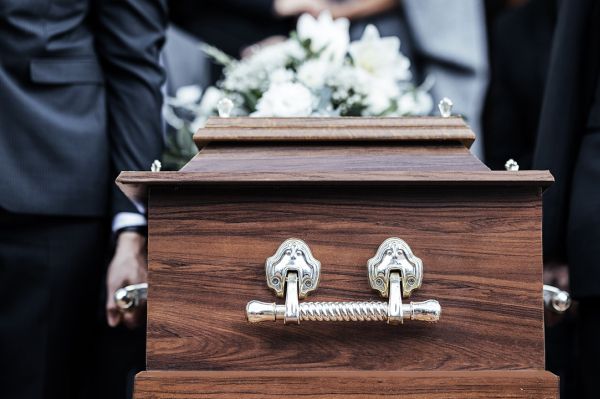Humanist Group Claims Baylor Religion Survey Flawed
A humanist group released a report disputing the results of Baylor University's 2008 Religion Survey, arguing that it is atheism, not religiosity, that is on the rise in America.
The report on Monday by the Council for Secular Humanism calls into question survey findings published by Baylor's Institute of Studies of Religion in its book What America Really Believes.
In particular, the humanist group takes issue with the chapter entitled, "Atheism: The Godless Revolution That Never Happened," in which Baylor researchers observed that the percentage of atheists have remained unchanged at 4 percent over the past 63 years. The chapter also reveals survey findings that show two-thirds of those who claimed "no religion" did express some belief in God.
Dr. Rodney Starke, lead researcher of the Baylor survey and author of the book, suggested in the chapter on atheism that those who claimed to be "irreligious" were simply "unchurched." The Baylor Survey found that Americans who claimed to be irreligious exhibited religious behavior with a majority praying, around a third of them professing belief in Satan, hell and demons, and around half believing in angels and ghosts.
Gregory S. Paul, author of the CSH report, disagrees with the Baylor results.
He argues that the survey has failed to document large numbers of Americans who are in the middle. Some who are not "convinced atheists" but fall into categories of nontheism, such as those who are self-described agnostics or "spiritual but not religious," should also be counted toward the number of Americans who disbelieve in God, suggests Paul.
"Baylor's methods largely ignore these doubters, making nonbelief appear less prevalent in society than it truly is. The Baylor team treats almost any deviation from strict atheism as a sign of religiosity," contends Paul, a freelance paleontologist.
"Doing so falsely maximizes the apparent level of faith," he says.
Paul said that if the Baylor survey had included key findings of major polling organizations such as Gallup, Harris, and Pew, it would have found an increasing secularization of American society.
"Religious belief and activity in America are trending downward in so many ways that it is simply untenable to pretend that the nation is growing more religious," says Paul.
He further suggests in his CSH report that the Baylor team defended a false contention that religious belief is on the rise. He also charges Stark for improperly evaluating the data based upon his beliefs.
Not so, says Baylor University, which responded to the CSH report on Tuesday.
Jill Scoggins, a spokeswoman for Baylor University, told The Christian Post on Tuesday the survey was not done "with an end in mind" but with a genuine interest on the religious attitudes of Americans.
"I know it's hard to understand that a Christian university doesn't have an agenda but we don't," she said.
Scoggins emphasized that Baylor's Institute of Studies of Religion had the survey independently conducted by the Gallup Organization to ensure the professionalism and validity of the results.
"We aren't going to skew data," she said. "We're just as interested in finding out what American religious attitudes are."
Baylor University also sent The Christian Post its official statement on the matter.
The statement reads: "The Institute and its faculty continue to stand by the validity of the survey's methodology and analysis. A total of 1,648 adults chosen randomly from across the country answered more than 350 items in the survey, which was conducted by the Gallup Organization in the fall of 2007.
"Moreover, one of the principal investigators of the Baylor surveys is Rodney Stark, described by Institute for Studies of Religion co-director Byron Johnson as, 'the nation's most experienced researcher on religion, having conducted the first major surveys of American religion in the early 1960s while on staff of the Survey Research Center at the University of California, Berkeley. Since then, Dr. Stark has won numerous academic awards and his books have been translated into 13 foreign languages. He and the faculty of the Institute for Studies of Religion are nationally recognized for their superior scholarship and academic integrity.'"
Baylor scholars are also questioning Paul's credentials. According to Scoggins, none of the Baylor faculty has heard of Paul although they are well aware of the leading researchers in both religious studies and secular humanism/atheism.
This isn't the first time Paul has assailed against religion in one of his publications.
In 2005, Paul, a CSH speaker who has written a book on "theropod dinosaurs," drew attention for an article, published in the "Journal of Religion & Society," that suggested that belief in God is not only unnecessary for a morally and ethically healthy society but may actually contribute to social problems.
The article sought to make the case that nations with a higher commitment to Christianity experience more social pathologies such as "higher rates of homicide, juvenile and early adult mortality, STD infection rates, teen pregnancy and abortion in the prosperous democracies," according to The Times in London.
The publication was dismissed by Canadian statistician Scott Gilbreath as "statistically invalid."
"Gregory Paul has published a study of social problems and religious faith; but he has no apparent expertise or qualifications in social science research so, predictably, said study is statistically invalid. Said study was published by a journal that apparently does not have high standards for articles it publishes, and it does not even know how to contact Mr Paul," wrote Gilbreath.
The 2008 Baylor Religion Survey, released in September 2008, was a follow-up to the landmark 2005 survey by the school's Institute for Studies of Religion that revealed a majority of Americans believe in God or a higher power.
The CSH report can be read here.
More details about The Baylor Religion Survey can be found at the Baylor Institute for Studies of Religion Web site.





















